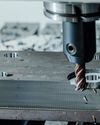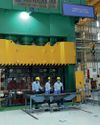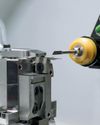
Aluminum, a versatile material integral to various industries today, plays a crucial role in products ranging from packaging to aviation. Its production, however, poses environmental challenges as it consumes natural resources and generates production residues. Following iron, aluminum stands as the world’s second most utilised metal, extracted primarily from bauxite, an abundant mineral constituting 8% of the Earth’s crust.
The refinement of bauxite into alumina and subsequent smelting processes contribute over 90% of direct CO2 emissions in aluminum production. Notably, the energy-intensive electrolysis stage accounts for a significant portion of these emissions. While primary aluminum production incurs higher energy costs, secondary production, mainly from recycled materials, significantly reduces energy expenses.
The benefits of aluminium recycling extend beyond energy savings, with the potential to mitigate global warming and decrease fossil fuel dependency by up to 94%. Since 1880, approximately one billion tons of aluminum have been produced worldwide, with a substantial portion still in use today, notably in construction, electrical components, transportation, and beverage packaging.
The widespread use of aluminum across various sectors can be attributed to its lightweight nature, durability, conductivity, affordability, and ease of processing. Moreover, the aluminium industry plays a pivotal role in mitigating greenhouse gas emissions, particularly in transportation, where lightweight aluminium components contribute to fuel efficiency.
This story is from the May 2024 edition of Manufacturing Today.
Start your 7-day Magzter GOLD free trial to access thousands of curated premium stories, and 9,000+ magazines and newspapers.
Already a subscriber ? Sign In
This story is from the May 2024 edition of Manufacturing Today.
Start your 7-day Magzter GOLD free trial to access thousands of curated premium stories, and 9,000+ magazines and newspapers.
Already a subscriber? Sign In

Optimising milling operations
Exploring innovative strategies that are reshaping the milling landscape to meet the challenges of a competitive global market.

The path to excellence
Tata AutoComp’s Double Deming triumph is testament to quality and innovation

Boosting India's energy efficiency with advanced low voltage motors
Stefan Floeck, Division President of IEC Low Voltage Motors at ABB Motion, discusses the role of low voltage motors in India’s industrial future.

The Tech of E-commerce
Technology is revolutionising e-commerce by enhancing demand forecasting, inventory management, and customer experiences through AI, blockchain, IoT, and real-time data analytics.

Driving Sustainability and Innovation
A conversation with Rajendra B Chunodkar, President Manufacturing Operations, Lupin

The evolution of machining technologies
The evolution of machining technologies is reshaping the manufacturing landscape, offering unprecedented opportunities for efficiency, precision, and sustainability.

Transforming the future of manufacturing technology
A pre-event report on IMTEX 2025: The premier manufacturing and metal cutting technologies event for

THE MAKE IN INDIA JOURNEY
An analysis of the initiative's impact on the manufacturing sector.

Tata Motors Re.Wi.Re: Innovation meets responsibility
Tata Motors advances circular economy via Re.Wi.Re scrapping facility.
After Apple, Google Pixel set to be manufactured in India
Dixon Technologies' alliance with Compal Electronics is poised to further accelerate India's push to become a global hub for smartphone manufacturing.